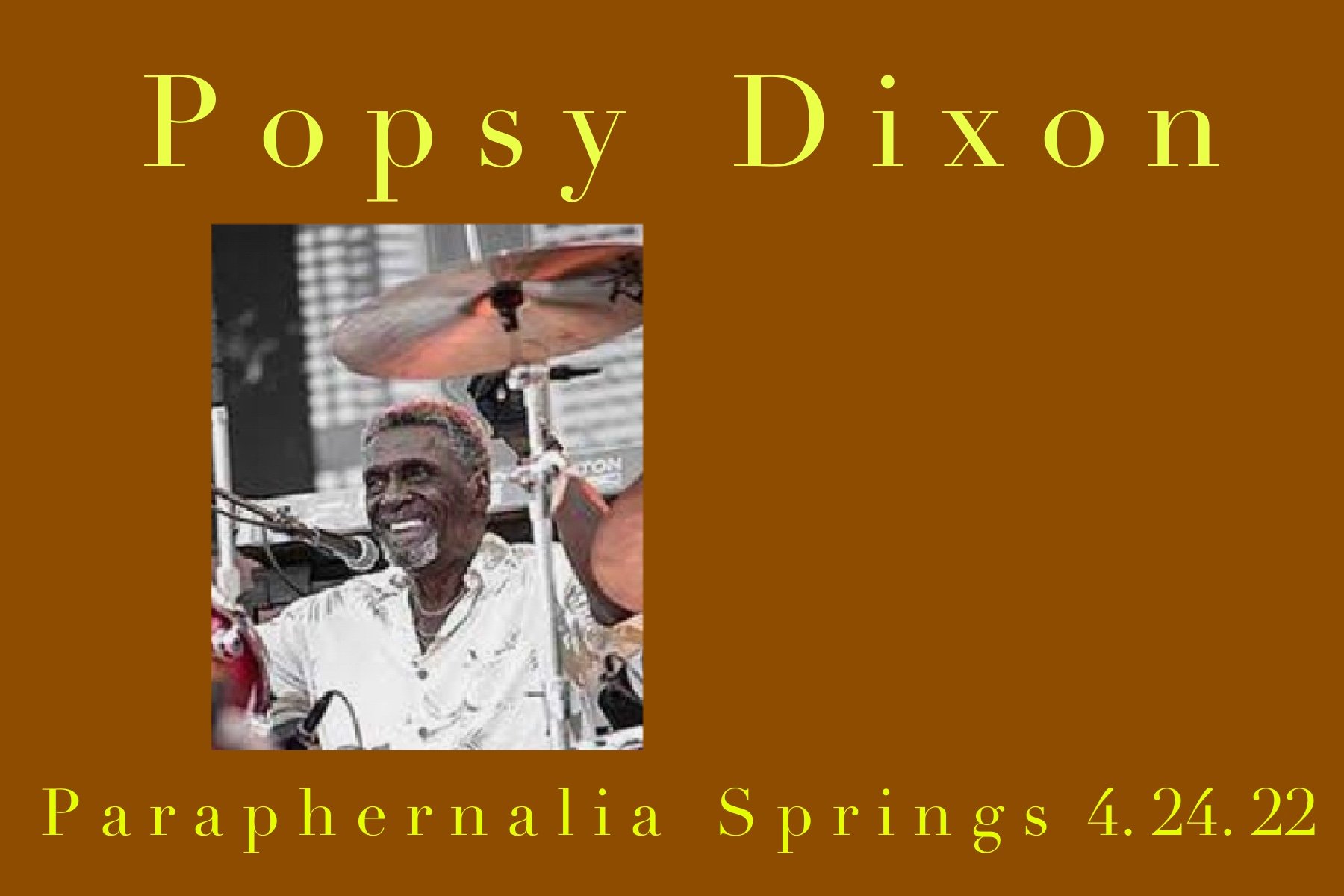I don’t think it’s easy to sing. And I don’t think it’s easy to play the drums! So for degree of difficulty how about trying to drum and sing? Enter Popsy Dixon. One basic observation is that the ballad is the tear-dropping landscape of his craft. He slows things down, taps the brakes and allows the listener to stop the presses and stresses, to check in with our emotional temperature. It would be tepidly stereotypic to label him as a soul singer. He is a torch singer, exploring the unrequited and ecstatic territories of love gone every which way. Largely understated and strenuously true, Mr. Dixon intermittently takes his falsetto elevator to the 21st floor of salvation. He operated in the now gone and indispensable band the Holmes Brothers, passing away January 9, 2015. Maybe a bit over the top to include 4 pieces, but they all carry that well. Just let him come show you the deep end of the pool.
Here’s what he does to a Gillian Welch composition and below a belly song by Tom Waits
the guitar pirouetter, Fred Frith
“Mistakes are almost always of a sacred nature”
“Alim and Fargana Qasimov
March 6th, 2010
Slosberg Hall Brandeis University
According to The New York Times, “Alim Qasimov is simply one of the greatest singers alive, with a searing spontaneity that conjures passion and devotion, contemplation and incantation.”
And the Guardian had this to say, Qasimov “is certainly one of the most thrilling, unashamedly emotional performers on the planet, and the finest exponent of mugham”.
So what is mugham?
The Azerbaijani Mugham is a traditional musical form, characterized by a large degree of improvisation. The Mugham, though a classical and academic art, draws upon popular bard melodies, rhythms and performance techniques and is performed in many venues throughout the country.
Contemporary representations of the Azerbaijani Mugham reflect different periods of Azerbaijan’s history and its contacts with Persians, Armenians, and Georgians and with other Turkic peoples. This musical genre shares artistic characteristics with the Iraqi Maqam, the Persian Radif and the Turkish Makams. In the past, Mugham was primarily performed on two secular occasions: the toy, the traditional wedding feast and the majles, a gathering of connoisseurs in private settings. It was also cultivated by members of the Sufi orders and by performers of religious dramas known as ta’zie or shabih. Official competitions and informal contests served to establish the reputation of accomplished musicians.
This modal genre features a male or female singer accompanied by musicians playing traditional instruments, such as the tar (a long-neck lute), the kamancha (a four-string spiked fiddle) and the daf (a type of large tambourine). Since Mugham cannot be transcribed in a fixed form, masters who train students in the fine art of interpretation to ensure the variety of this artistic expression transmit multiple versions.
Still perplexed? Please watch the video below from just a few years ago. The performance in 2010 was incredible and the only other concert that I can compare it to was, not surprisingly, Nusrat Fateh Ali Khan at Sanders Theatre in the early 90s.
In 1995 Qasimov performed a duet with Jeff Buckley on “What Will You Say” which is on Buckley’s Live à l’Olympia release. This helped him gain more national exposure.
https://www.youtube.com/watch?v=cHkXM-i_1MU
”
“I like chords that are very lush with all the lush parts taken out.”




